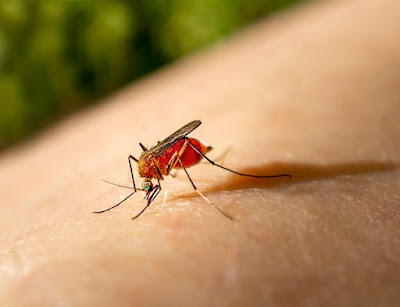
Fever is a common symptom of many illnesses, including infections caused by viruses, bacteria, and parasites. One such parasitic infection is Malaria, which is caused by the bite of an infected mosquito. Malaria is a potentially life-threatening disease that requires prompt treatment. This article will discuss the treatment options for Malaria fever, Malaria symptoms, and some general Fever Medicine.
Malaria Symptoms:
Malaria symptoms usually develop within ten days to 4 weeks after being bitten by an infected mosquito. The symptoms include high fever, chills, sweating, headache, body aches, and fatigue. In some cases, nausea, vomiting, and diarrhoea may also occur. Malaria can lead to severe complications such as organ failure, seizures, and even death if left untreated.
Malaria Treatment:
The treatment for Malaria depends on the severity of the illness, the species of the parasite causing the infection, and the patient's age and overall health. Some of the common medications used to treat Malaria include:
- Chloroquine: Chloroquine is a medication used for decades to treat Malaria. It interferes with the parasite's replication ability and eventually kills it. However, some strains of the Malaria parasite have become resistant to Chloroquine, making it less effective in certain parts of the world.
- Artemisinin-based Combination Therapies (ACTs): ACTs combine Artemisinin, a potent anti-Malarial drug, with other medicines to increase its effectiveness. ACTs are currently the recommended treatment for Malaria in most parts of the world.
- Quinine: Quinine is an older medication still used to treat severe cases of Malaria. It is often used in combination with other medicines to increase its effectiveness.
- Mefloquine: Mefloquine is a medication often used to prevent Malaria in travellers going to areas where the disease is common. It is also used to treat Malaria in some cases.
- Primaquine: Primaquine is a medication used to treat a specific type of Malaria parasite that can remain dormant in the liver for months or even years after the initial infection. This medication helps to prevent the parasite from reactivating and causing a relapse.
Malarial Fever Treatment:
Malarial fever is a type of fever caused by the Malaria parasite. High fever, chills, and sweating characterize it. The treatment for Malarial fever is the same as the treatment for Malaria. In addition to medications, it is also important to rest and drink plenty of fluids to prevent dehydration.
Medicine for Fever:
In addition to the medications mentioned above for Malaria and Malarial fever, many over-the-counter pills can be used to treat fever. Some of the common fever medications include:
- Acetaminophen (Tylenol): Acetaminophen is a commonly used medication for fever and pain relief. It works by blocking the production of prostaglandins, chemicals in the body that cause pain and inflammation.
- Ibuprofen (Advil, Motrin): Ibuprofen is a nonsteroidal anti-inflammatory drug (NSAID) often used to treat fever and pain. It works by blocking the production of prostaglandins and reducing inflammation.
- Aspirin: Aspirin is an NSAID often used to treat fever and pain. However, it is not recommended for use in children or adolescents due to the risk of Reye's syndrome, a rare but severe condition that can cause swelling in the liver and brain.
- Qurs Bukhar Ajmali: Qurs Bukhar Ajmali is an effective herbal medicine by Dawakhan Hakeem Ajmal Khan for malarial fever. It is a type of fever caused by parasites; this disease is transmitted to the human body through the bite of an infected mosquito. A person infected with Malaria often becomes sick with a high fever and experiences shaking chills.

Comments
Post a Comment